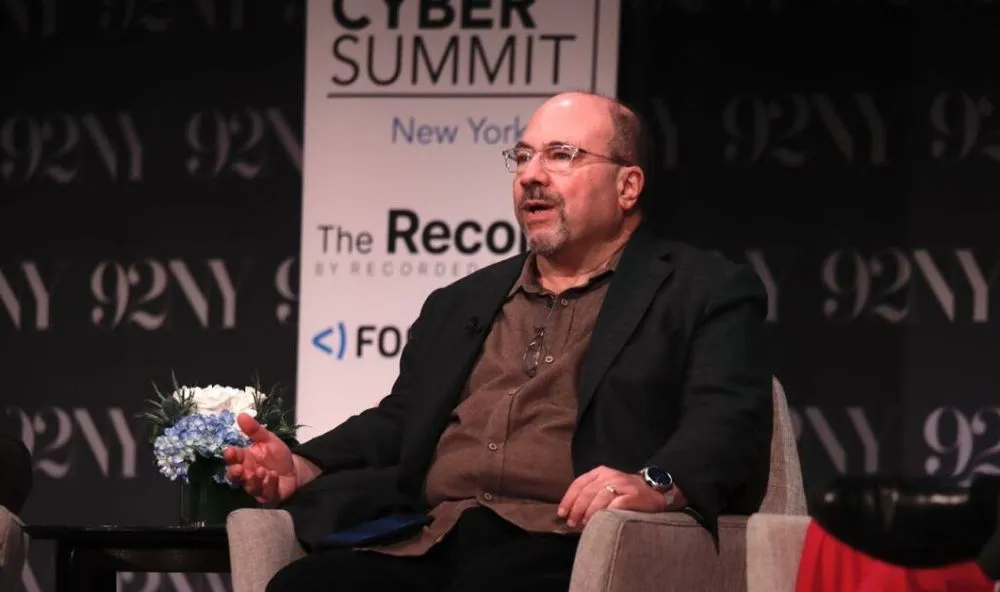Craigslist founder donates $200,000 to HBCU cybersecurity initiative
The founder of Craigslist donated $200,000 to an initiative supporting a cybersecurity program at historically black colleges and universities (HBCUs) in an effort to give more opportunities in the field to Black students.
Craig Newmark has been heavily involved in efforts to build out the cyber workforce in the U.S. and has donated millions to several initiatives through his Craig Newmark Philanthropies organization.
On August 28, the organization gave the grant to the National Cybersecurity Alliance (NCA) – which started the “See Yourself In Cyber” HBCU Career Program last year thanks to support from the Cybersecurity and Infrastructure Security Agency (CISA) and funding from Dell and other top tech firms.
"I am proud to support the National Cybersecurity Alliance in their mission to empower underrepresented students with the tools and opportunities to succeed in the cybersecurity field,” Newmark said. “This program exemplifies the positive impact that education and mentorship can have on building a diverse and skilled workforce."
Almost exactly one year ago, the NCA announced the program and said it would serve as the connective tissue between cybersecurity firms and HBCUs like Prairie View A&M, Southern University, St. Philip’s College, Texas Southern University.
Students at the schools would be given networking opportunities, mentoring programs, trainings, tool implementations, one-on-one sessions with cybersecurity experts and more.
Several in-person events were held at HBCUs across the country where cybersecurity officials from companies like Trellix, Quanta and Proofpoint met with students, providing advice on specific cybersecurity career paths, what professional cybersecurity jobs will look like and specific guidance from recent HBCU graduates working in cybersecurity.
Lisa Plaggemier, executive director of the National Cybersecurity Alliance, said the new funding from Newmark would enable them to expand the program and allow more students from underrepresented backgrounds to “break into and excel in the rapidly evolving cybersecurity sector."
In April, the organization announced a scholarship program that will help fund cybersecurity students at Bennett College, Claflin University, Fayetteville State University, North Carolina Central University, Prairie View A&M University, St. Philip’s College, Southern University A&M College, Texas Southern University, Winston Salem State University.
“The cybersecurity and IT industries are growing at a rapid pace and investing in a diverse workfield that incorporates different perspectives, experiences and talent is essential to ensuring the field reaches its fullest potential,” Plaggemier said.
“The HBCU Scholarship Program will go a long way towards fulfilling the goal of helping under-represented groups enter and succeed in these professions.”
The NCA said it plans to use the new funding to expand its guest lecturers and curriculum development; student training, certification, and job placement; and developing real-world experiences via internship opportunities.
They also plan to use a portion of the funds to conduct virtual events and amplify the program’s overall reach.
One of the key pillars of the White House’s National Cybersecurity Strategy released earlier this year was workforce development and addressing the dearth of cybersecurity talent in the U.S. There are still more than 700,000 unfilled cybersecurity roles and Black candidates represent just 9% of the workforce.
Several HBCUs have created cybersecurity certificate programs and majors in recent years while CISA has also invested heavily in programs designed to increase cyber literacy at a young age in minority communities.
Correction: A previous version of this article incorrectly stated who provided funding for the "See Yourself in Science" HBCU Career Program. The Cybersecurity Infrastructure and Security Agency provided support, but not funding.
Jonathan Greig
is a Breaking News Reporter at Recorded Future News. Jonathan has worked across the globe as a journalist since 2014. Before moving back to New York City, he worked for news outlets in South Africa, Jordan and Cambodia. He previously covered cybersecurity at ZDNet and TechRepublic.



